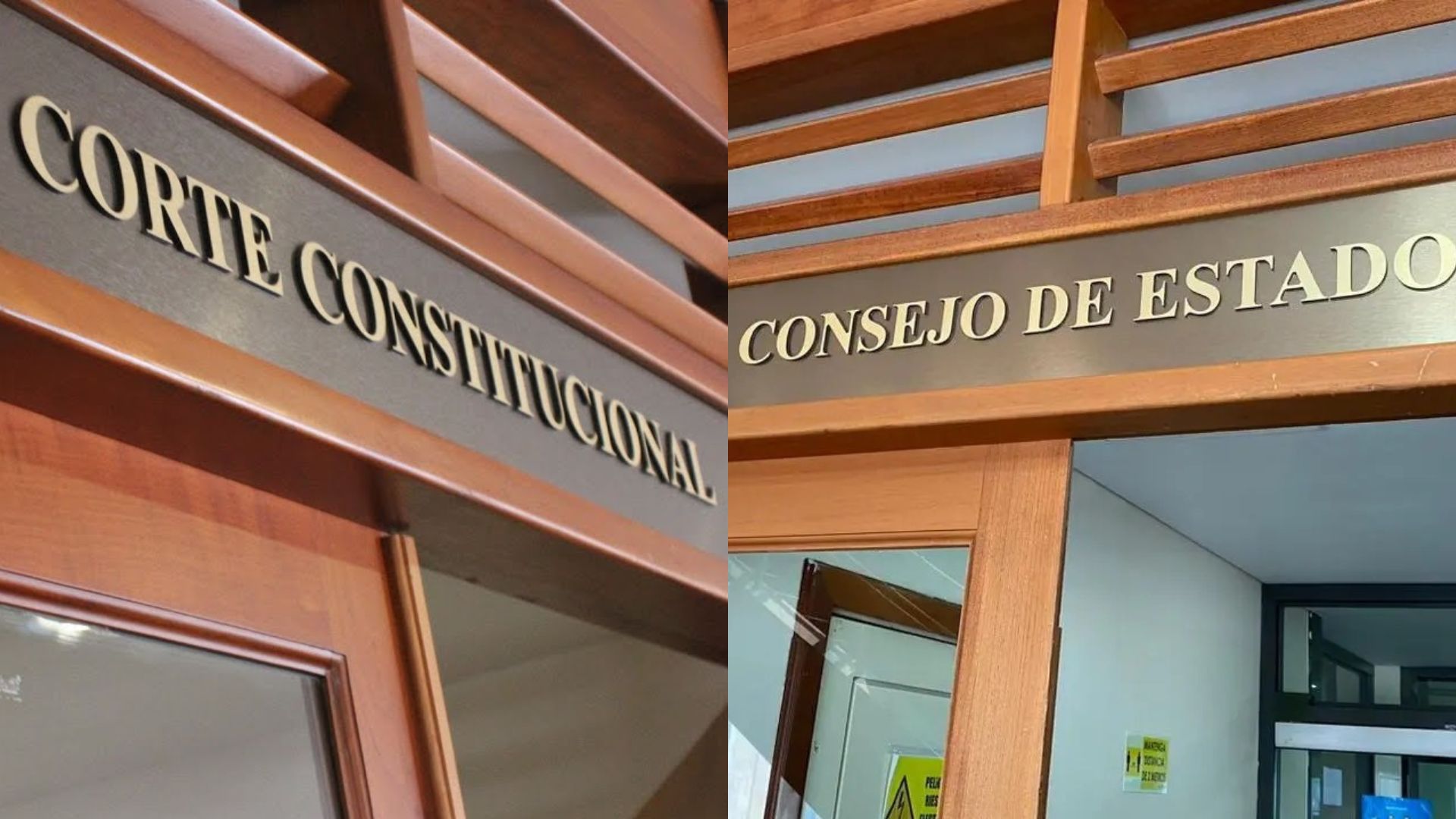What's unresolved in the pension reform 14 days before it goes into effect: interview with Andrés Velasco

The future of Law 2381 of 2024, or the pension reform, will be decided this week, as the Constitutional Court will have to resolve two lawsuits against the aforementioned law, which would go into effect on July 1, in less than two weeks.
Regardless of the decision the Supreme Court may make— whether it declares the pension reform constitutional, rules against it, calling it unconstitutional, or returns it to Congress for review and adjustment— it is important to maintain legal certainty regarding a law as important as Law 2381.
"The worst thing that could happen to the pension system is for there to still be uncertainty on July 1st," warns Andrés Mauricio Velasco, president of Asofondos, who in an interview with EL TIEMPO, addressed the possible scenarios facing the pension reform, the important issues that remain to be resolved, such as pension insurance and generational funds, as well as its regulations.
This week is crucial for pension reform. What are you seeing at Asofondos in the three possible scenarios? If the reform is declared constitutional, then let's move forward. We will redouble our efforts to ensure the necessary decrees are issued to achieve the utmost clarity and implement this minimum viable option on July 1st. If it is declared unconstitutional, rest assured, because Colombia has a functioning pension system. If the ruling is to return it to Congress, then we will return to that stage to make the best proposals for the pension system and continue improving this initiative. We hope that there will be a veil of legality over the decisions made up to this point, especially for the people who moved, taking advantage of the window of opportunity. It is very important that this be maintained.
We're less than 15 days away from Law 2381 coming into effect. What's the worst-case scenario ahead of that key date? The worst-case scenario is that the Constitutional Court fails to rule, that a decision is not reached before July 1, that the reform goes into effect, and that legal decisions are subsequently issued that modify the status quo, return it to Congress, or declare it unconstitutional.
The issue is that contributions under the new pension rules begin on August 1. If a person earning more than 2.3 times the minimum wage did not choose their Accai (Individual Savings Supplementary Component Administrator) within the established timeframe, they will be assigned to one of the Accai programs, and their employer will contribute the amount of their salary that exceeds that threshold.
But if the reform ends up failing, it's necessary to define how these personal resources will be managed; they must somehow be reversed and returned to the AFPs. Added to this is the fact that the base contribution to that person's pension, equivalent to 2.3 minimum wages, went to Colpensiones and was divided there. Part of that money went to the Banco de la República Savings Fund, and the rest has already been spent.
Therefore, the uncertainty generated if there is no Court decision not only before July 1st, but even before the end of this legislative period, is enormous and could generate enormous chaos with these resources, which could end up with the possibility of lawsuits against the State. There are enormous legal and operational risks because reversing these processes will not be easy; we're talking about 20 million people.

Law 2381 of 2024 will come into effect on July 1. Photo: MinCit
Considering that the reform will take effect on July 1, we remain deeply concerned about three issues, especially the pension insurance for the transitional population, which covers contributors against two types of risks: accidents that could cause disability or death. In either case, the insurance coverage is activated so that the person or their family receives the pension.
The problem is that this policy is becoming more and more expensive because the Colombian population is aging, and more and more people are at risk of accidents. Second, the population is increasingly experiencing longer suspensions, and the lines for pension insurance are very costly because they are unpredictable. A man or woman marries someone younger and their pension is inheritable, and that's what contributes to making the policy more expensive. This insurance is paid for with a 3 percent commission charged by the administrators, and today it's taking 2.5 percent, leaving the AFP with only 0.5 percent, which forces us to be more efficient and maintain fierce competition in the sector.
Until now, this could be managed with the total population, which would lower the cost of that insurance, but what the reform does is segment the population. There is one in transition and another in non-transition, where the younger population is. Those in transition, by definition, have accumulated 750 and 900 weeks, have been in the labor market for almost 20 years, and are more expensive due to their age. The population we have left in the AFPs is the one with the lowest incomes; they are the ones most prone to accidents, and the pension insurance to cover them is unavailable because the risk is higher, so it's a market failure.
How do you fix that issue? Law 2381, knowing that the problem existed, stated that any problem that arises in the contracting of this insurance would be resolved by the State, and in the regulatory decree, they included a map in case there was a market failure in the non-transition population. But for the transition population, they said no; that remains as Law 100, meaning it didn't solve the problem. So, right now, we run the risk that the transition population will be left without pension insurance on July 1st, and that's a problem because there are always people who get injured. We know the government is concerned and will issue a decree through the General Directorate for the Regulation of the Social Security Economy of the Ministry of Finance. We have purchased insurance, but as soon as the reform goes into effect, they become invalid. If the reform fails, it's not a problem because we have insurance.
What are those other issues that have not been resolved? These are two things that the regulations allow that we find illegal and that greatly concern us due to the undercapitalization of the funds. One is that the regulations allow the Savings Fund for the Contributory Pillar, which the Bank of the Republic will manage, to be used to pay for the Semi-Contributory Pillar. The nation should safeguard this Fund as a treasure that cannot be touched by anything in the world, because it is the only guarantee that 20 million people have that they will receive a pension, since it is where their pensions will come from.
The other thing the regulations allow is that the Minimum Pension Guarantee Fund, which is designed for the RAIS (Individual Savings System with Solidarity) to cover minimum pension payments when individual capital isn't enough to cover the minimum amount, can finance the Colpensiones Premium Measure System. This is another way of using money for something it shouldn't be. Both issues are fiscal, but they are inconvenient and illegal, and they must be resolved.

The Constitutional Court begins to decide the future of Law 2381 of 2024, or Pension Reform. Photo: Archive
If the reform is returned, we are preparing to propose to Congress some modifications that we believe will improve the reform in two dimensions: sustainability of both the system and its fiscal aspects, and equity. In the funds, we always advocate for a lower threshold (1.5 times the minimum wage), and that contributes to improving both dimensions. In the long term, Colombians are better off if the private sector plays a significant role in the pension system because it is a self-financing system and is more sustainable; any other system requires fiscal efforts from the government.
What else can be improved in the project if there is a chance? There are many options, such as lowering the threshold to 2.3 salaries, allowing private funds to participate in the Basic Pillar by competing with public providers, as happens in other sectors, such as banking, insurance, communications, and healthcare, where they compete under the same rules. This is a debate we can have in Congress so that people can choose which system they want to be in.

The new calculation for weeks of contributions must be done using calendar days, not 30-day months. Photo: iStock
At this time, we have two decrees without comment. One is on generational funds, which we can work with because it's a fairly good decree. Another is on decumulation, but it only refers to private funds. This decree has a thousand problems because it describes things that don't exist; it requires great precision because, ultimately, these are public resources. For example, they say nothing about the decumulation of the Contributory Pillar Savings Fund, the most important in the country.
We still need many things, but it's a matter of life or death, regarding pension insurance. We need to be very clear that this is a government issue, a government market failure. I insist, it's also important to be clear about how the Savings Fund's deaccumulation process will work, because people think that process starts in 10 years, but that's not the case. The fund begins to accumulate, and it accumulates in the first month. That is, in August, we're already seeing accumulations and deaccumulations.
eltiempo





